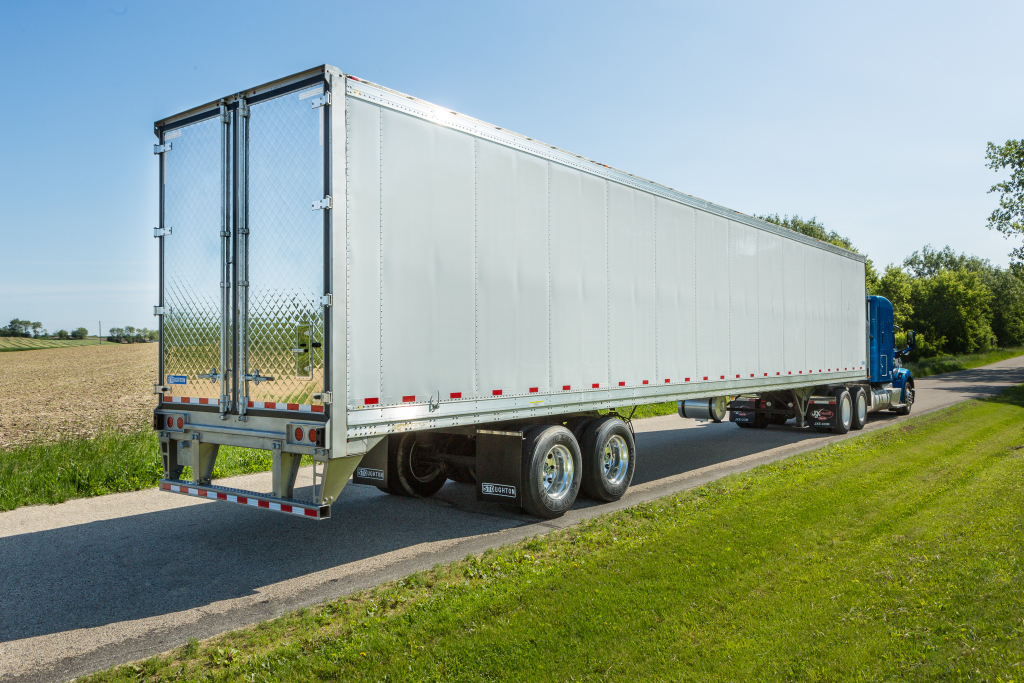
A recent fatal truck crash could have been prevented if California had complied with federal rules, Transportation Secretary Sean Duffy said.
The comment serves as the latest round in the battle between the Department of Transportation and California Gov. Gavin Newsom. Earlier this month, Duffy announced that the Federal Motor Carrier Safety Administration would withhold about $40.7 million from California for not complying with the agency’s English-proficiency standards.
Now, the DOT contends that an Oct. 21 fatal crash on Interstate 10 in Ontario, Calif., could have been prevented if the state had followed FMCSA’s emergency interim final rule regarding the issuance of non-domiciled CDLs.
The California Highway Patrol confirmed that truck driver Jashanpreet Singh, 21, was arrested on Oct. 21 for driving under the influence of drugs and vehicular manslaughter following the eight-vehicle crash. Additionally, the Department of Homeland Security said the U.S. Immigration and Customs Enforcement (ICE) lodged an immigration detainer for Singh. According to the DHS, Singh is from India and entered the U.S. illegally in 2022.
“My prayers are with the families of the victims of this tragedy,” Duffy said in a news release. “It would have never happened if Gavin Newsom had followed our rules. California broke the law, and now three people are dead and two are hospitalized. These people deserve justice. There will be consequences.”
The California State Transportation Agency pushed back, posting on the social media platform X that the state doesn’t decide whether a CDL applicant is eligible.
“MISINFORMATION ALERT: The state does not determine commercial driver’s license eligibility,” the state transportation agency wrote. “The FEDERAL government approves and renews all FEDERAL employment authorization documents that (allow) individuals to work and obtain commercial driver’s licenses.”
MISINFORMATION ALERT: The state does not determine commercial driver’s license eligibility. The FEDERAL government approves and renews all FEDERAL employment authorization documents that allows individuals to work and obtain commercial driver’s licenses.
— CalSTA (@CA_Trans_Agency) October 23, 2025
Additionally, Newsom has said that California CDL holders possess a fatal crash rate nearly 40% lower than the national average.
However, the DOT released a timeline in an attempt to show that California should not have upgraded Singh’s CDL.
June 27, 2025: California issued Singh, who was a 20-year-old asylum seeker at the time, a restricted non-domiciled CDL. Because he was under 21, a “K” restriction limited Singh to intrastate driving.
Sept. 26, 2025: The DOT notified California of “significant compliance failures” following an audit into non-domiciled CDLs. The same day, FMCSA issued an emergency interim final rule to strengthen standards regarding non-domiciled CDLs. The new standards make asylum seekers ineligible.
Oct. 15, 2025: Singh turned 21 years old, and California’s Department of Motor Vehicles removed the “K” restriction, allowing him to operate in interstate commerce.
Oct. 21, 2025: Singh was involved in a fatal crash in Ontario, Calif. He was later arrested for driving under the influence and vehicular manslaughter.
The DOT has argued that California should have required Singh to return to the DMV to have his CDL upgraded. At that time, the DOT said, Singh would have been subject to the emergency rule and found ineligible to retain the non-domiciled CDL due to Singh’s status as an asylum seeker.
(H2) OOIDA supports efforts to restrict non-domiciled CDLs
The Owner-Operator Independent Drivers Association has long argued that there have been gaps in the non-domiciled program, allowing unqualified drivers to receive a CDL.
“OOIDA and truckers across America support the Trump administration’s actions to crack down on the issuance of non-domiciled CDLs,” Association President Todd Spencer said. “For too long, loopholes in this program have allowed unqualified drivers onto our highways, putting professional truckers and the motoring public at risk. This rule is a major step toward safer roads, greater accountability, and a more professional trucking industry.”
OOIDA also supports the Non-Domiciled CDL Integrity Act, which would put the interim final rule into law. Although the DOT’s non-domiciled CDL rule is in effect, the next president’s administration could decide to remove it. Additionally, a lawsuit has already been filed against the rule. If HR5688 becomes law, there would be a much higher hurdle for those who want to change it.
“Because the policy currently exists as an interim final rule, it remains vulnerable to legal challenges,” Spencer said. “Congress should act now to make it the permanent law of the land. OOIDA urges Congress to pass Rep. Rouzer’s Non-Domiciled CDL Integrity Act, which would make these common-sense road safety reforms the law and protect the integrity of America’s licensing system.” LL
Credit: Source link







